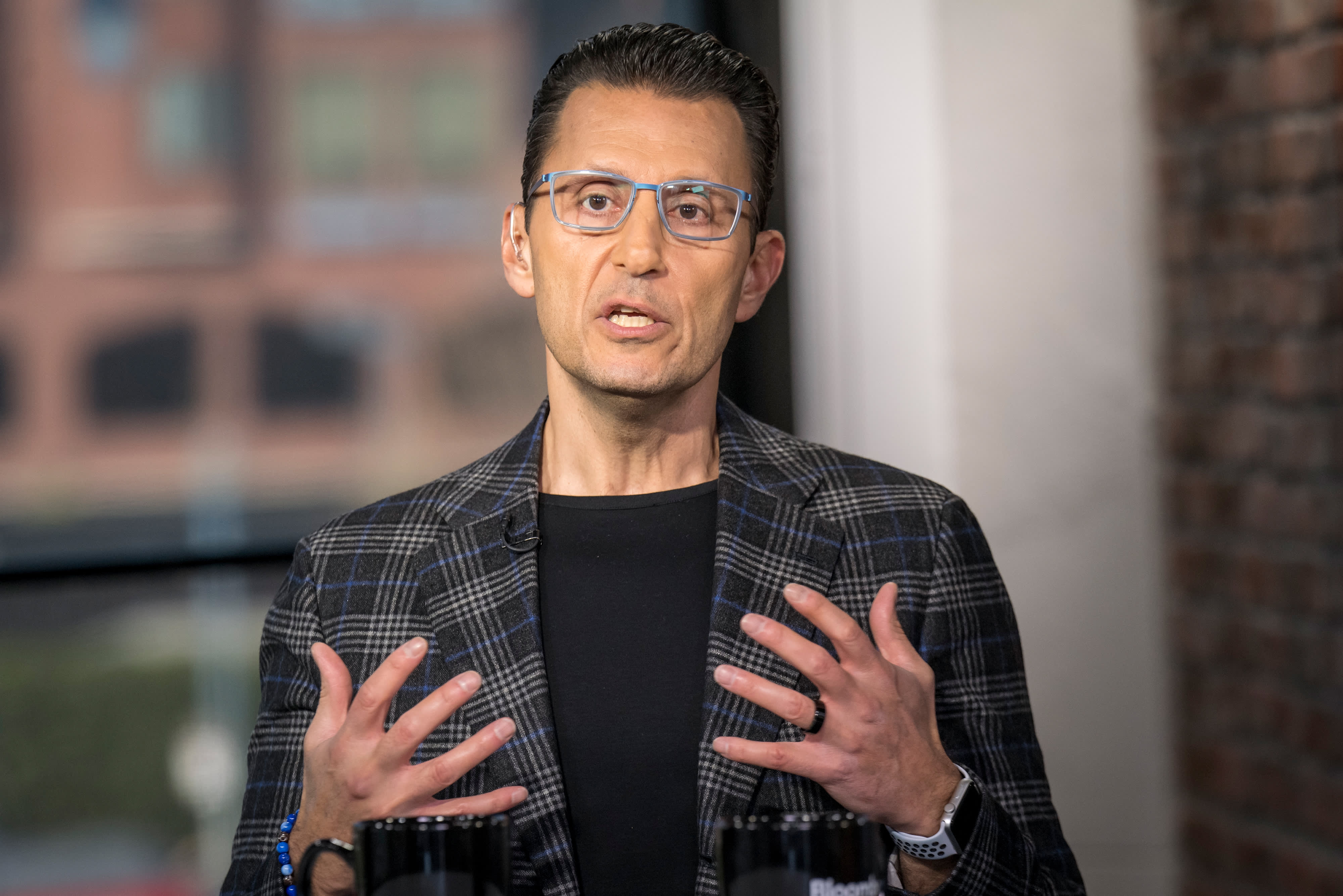Intuit CEO’s $20 billion buying spree has put tax software company firmly on tech M&A map

Sasan Goodarzi, president and chief executive officer of Intuit Inc., Feb. 25, 2020.
David Paul Morris | Bloomberg | Getty Images
When Sasan Goodarzi took the helm at Intuit in January 2019, the tax software company had made just one billion-dollar acquisition in its 36-year history.
Goodarzi has since completely rewritten the playbook.
Intuit announced on Monday that it’s buying email marketing provider Mailchimp for $12 billion. Nine months earlier, it closed the $8.1 billion purchase of personal finance company Credit Karma. They’re both among the 10 biggest U.S. tech deals over that stretch.
Long known for its TurboTax products for individuals and QuickBooks accounting tools for small businesses, Intuit has grown into a $155 billion software company. It’s accomplished this both through internal development and by purchasing smaller upstarts, including some that turned into core products. Intuit acquired Chipsoft, the maker of TurboTax, for $225 million in 1993, and bought budget tracker Mint in 2009 for $170 million.
Intuit’s largest deal prior to Credit Karma was the $1.3 billion purchase of online banking software provider Digital Insight in 2007. The company sold off that business six years later.
Goodarzi, who started at Intuit in 2004 and was most recently executive vice president of small business, said in an interview on Tuesday that he was working on a new expansion strategy before he became CEO. When he assumed his new role, he took his plans to the board and had a “hefty dialogue” about what the next 10 years would look like for Intuit.
The company came up with “five big bets” for growth, which were focused on helping people and businesses make smarter and faster decisions with more data and better information. Goodarzi said that Credit Karma addresses bet No. 3: “Unlock smart money decisions,” and Mailchimp gets at No. 4: “Be the center of small business growth.”
Goodarzi said Intuit ran experiments to see what the company could develop in-house and how quickly it could deploy the most critical products. His team concluded that Credit Karma and Mailchimp were so far ahead that it would take five years or more for Intuit to adequately compete. Customers don’t have time to wait.
“For us, it’s all about time to market,” said Goodarzi. “With their capabilities and the assets we have across Intuit, we leaped forward five to 10 years.”
The acquired companies will immediately add a healthy amount of revenue to Intuit’s income statement. Mailchimp, whose automated marketing products help businesses reach consumers through email and online channels, generated sales of $800 million in 2020. For Credit Karma, which provides credit reports and helps direct consumers to credit cards, auto loans and home loans, Intuit expects revenue in the current fiscal year to jump at least 56% to a minimum of $1.35 billion.
Intuit factored Credit Karma revenue into its projection for total 2022 sales of $11.05 billion to $11.2 billion, but that was before the Mailchimp purchase.
Both deals are being financed through a combination of cash and stock and, in the case of Mailchimp, some new debt. Intuit’s stock market performance is giving Goodarzi much of the ammunition he needs to swing big. The company’s market cap has swelled from about $50 billion when he became CEO to $155 billion today.
Intuit under Goodarzi
CNBC
Mailchimp conversations started about a year ago
Goodarzi said that while he hasn’t made any dramatic changes to Intuit’s corporate development team, he has ramped up the amount of time he’s spent with Anton Hanebrink, the company’s chief corporate strategy and development officer.
In scouting out Mailchimp, which had never raised outside funding, Goodarzi was able to call on on Credit Karma CEO Kenneth Lin to provide the company’s co-founders and owners intel on what it’s like to operate inside of Intuit.
“He’s been a very important part of this process for us,” Goodarzi said.
Conversations between the two companies started about a year ago, he added. Because there were no venture capitalists to call, Intuit relied on a product partnership the companies had been pursuing and the fact that Intuit co-founder Scott Cook had been helpful to Mailchimp CEO Ben Chestnut in the past. Chestnut said on the call with analysts that Cook has “given me invaluable advice” over the years.
Goodarzi said Intuit was the first company in the door to express potential takeover interest of Mailchimp. When the process got serious, Mailchimp hired Frank Quattrone’s Qatalyst Partners to open discussions more broadly.
“It ended up being a very competitive process,” Goodarzi said.
Intuit expects the transaction to close within the next six months. When it does, the company will add about 1,200 employees, a similar number that came in with Credit Karma, and a new hub in Atlanta, where Mailchimp is based. As of the end of July, Intuit had about 13,500 employees.
Intuit, which is headquartered in Mountain View, California, plans to invest in Atlanta even as it prepares for a future of hybrid work, Goodarzi said.
As for the possibility of more large acquisitions in the pipeline, Goodarzi suggested that the acquisitions of Credit Karma and Mailchimp have already addressed its most urgent concerns.
“These two were really essential for us to reposition the company for the future,” he said.